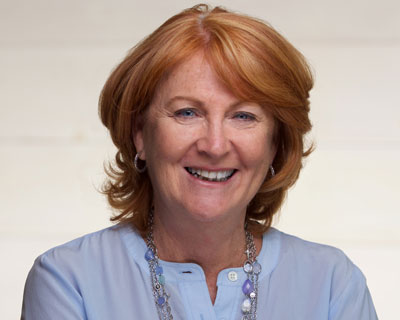Adapting to the “Phigitals” a.k.a Generation Z
“Each generation imagines itself to be more intelligent than the one that went before it, and wiser than the one that comes after it,” Josée Garceau quoted George Orwell during her talk for teachers and professionals at Dawson Oct. 18. Dawson’s Faculty Hub invited Garceau, who worked at the University of Sherbrooke for over 25 years in Student Services, Office of the Registrar and Recruitment, to share her insights about Generation Z.
When we speak about a generation, we are speaking in general terms about a group who shares similar experiences in their home and family life, education, society, the economy, media culture, technology, she said. “Generational characteristics are acquired, not innate,” Garceau said.
She gave the example of the economic reality facing different generations as they came of age and how that shaped their lives. Baby Boomers, born from 1946-1964, had access to a lot of jobs so they had a fun approach to life. Generation X, born from 1965-1981, had a difficult entry into the job market. As a result, Gen X has a need for more stability and money.
Millennials or Generation Y were born between 1982-2000. The rising generation born from 2001 and afterward is known as Generation Z or “Phigitals.”
Many of the first and second year students at Dawson today are Phigitals. Having grown up with smart phones, tablets and social media, they do not see much difference between the physical world and the digital world. That is why they are called Phigitals.
Some of the characteristics of Phigitals observed by Garceau are:
- a spirit of entrepreneurship
- participation in the sharing economy
- less access to owning property
- commitment to change
- resilient and pragmatic
- desire to lead a full life
- preference for action rather than observation
- need for personalization
- problem solvers
- curious, resourceful, egalitarian.
The Millennials look for someone to do something for them, compared to the Phigitals who believe they can do anything with a little help from YouTube.
At school, they are there to “acquire competencies, not diplomas,” Garceau said. They also want to know how to apply concepts learnt in class right away.
Garceau said that Dawson’s competition is YouTube, not other academic institutions.
Phigitals are constantly connected and 80 per cent use social media. Work and personal interests are intertwined and they feel non-stop pressure and anxiety. “They are content producers so they are not used to being passive,” she said. “Sometimes they find information they need on the web so they are less motivated to show up for class.”
The Phigitals are a new clientele and are different to the Millennials: “They take breaks in their education and they start and stop. They change interests and change programs. They are used to customization. They have more life goals and less career goals.”
Weaker points of Phigitals:
- magical thinking
- waiting is unbearable
- a need for constant validation
- weaker interpersonal skills.
After a half hour in class, they need a micro break, Garceau advised. Communicate with them more frequently with shorter messages. Email and voice mail does not work to reach them.
Adapting to Phigitals:
- It’s not the availability of information that’s important but its immediacy
- YouTube, Instagram, Snapchat, less Facebook
- For them, virtual doesn’t mean impersonal
- Face-to-face always has its place
- Being online is a way to connect with others and learn about the world
Garceau’s advice to teachers:
“I think the most important aspect is to develop a closer relationship with students by asking them what their passions are, and what skills they want to acquire to fulfill them. Depending on the subject, ask for their input to find the best way to learn or experience it. Would they rather use some technology? Go outside the classroom? Use video? Make a video? Maybe the whole class could be an experiment on how to learn this specific subject, and have students be fully part of it.
“Finally, they absolutely have to learn how to learn by themselves. For them, the future will involve ongoing continuing education as the demands and needs of society will constantly change.”
Additional reading about Gen Z:
- Pew Research Center: Defining generations: Where Millennials end and Generation Z begins
- Forbes: How Generation Z Is Shaping The Change In Education
- Top Hat Blog: How to Teach Generation Z in the Classroom



